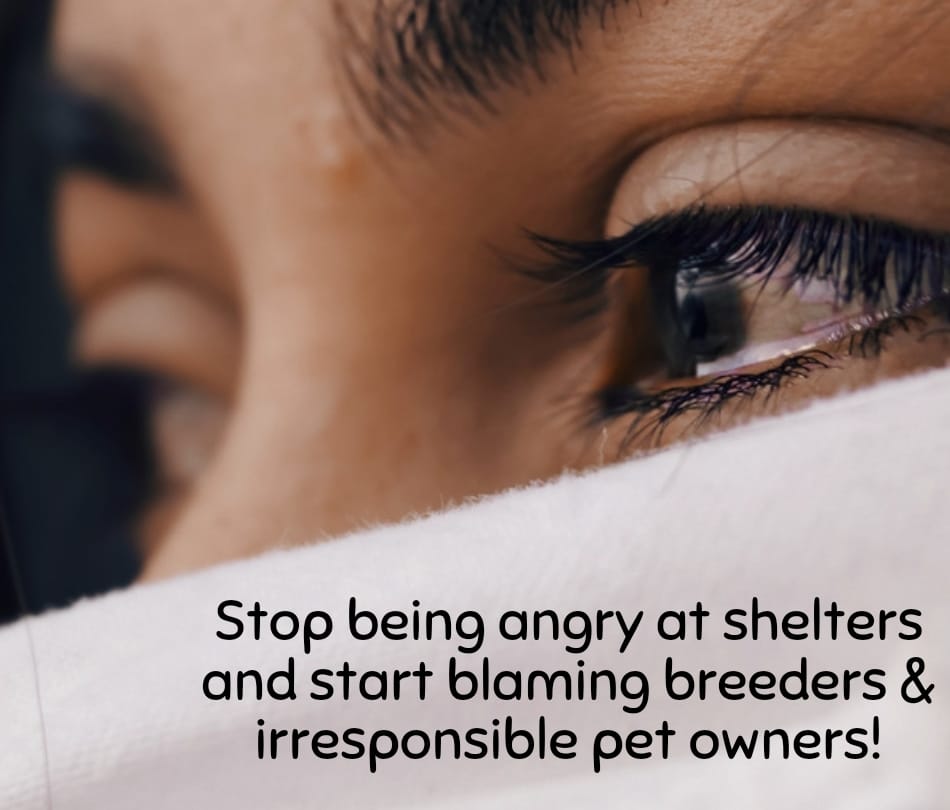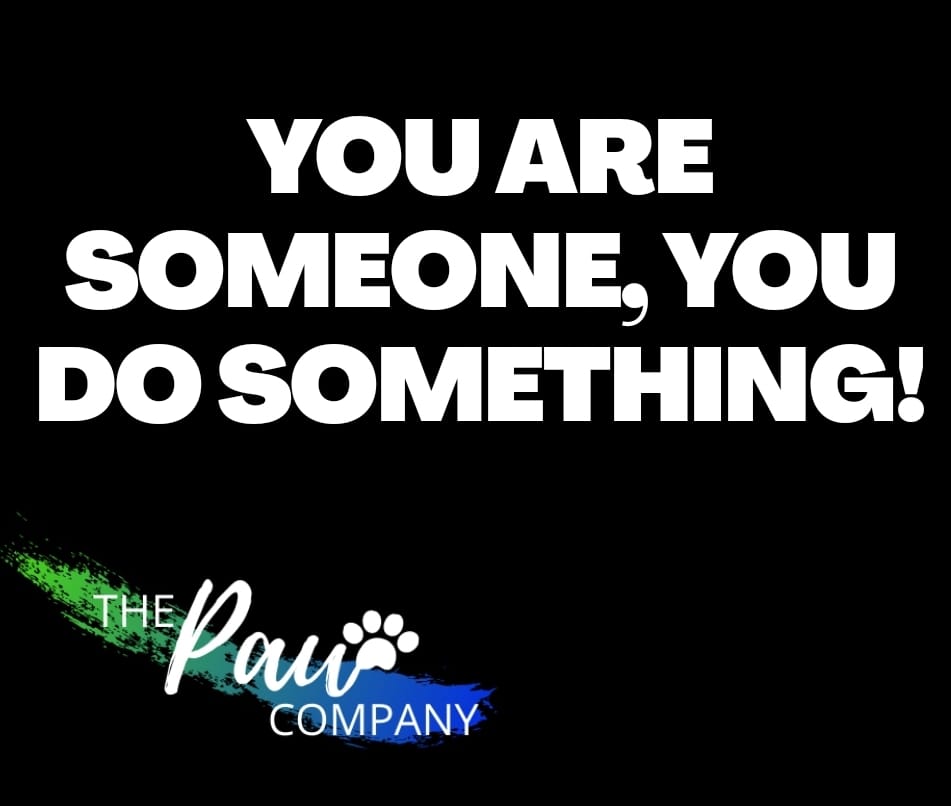
WHEN IT COMES TO HELPING ANIMALS, MOST PEOPLE WANT TO SHIFT THE RESPONSIBILITY ON AN ALREADY OVERWHELMED SYSTEM.
Animals always need help everywhere and we are grateful for everyone who helps! Sadly, too often we hear the phrase “someone do something “, including a picture of an animal that is dumped, hurt, or lost. Every animal welfare organization is already overwhelmed, that I can guarantee. Many people take in an animal that is hurt or dumped or lost and that is the right thing to do, but the problem comes in with the next step.
They call one of the organizations and just want to hand the animal over, feeling that they did their part. They get angry when the organization says can’t help at the moment and these individuals may even share this on social media. Usually, they do not offer to even donate food or funds or take the animal to someone, because they think the ”rescue” was enough. You are someone, you can do something.
Maybe the organization doesn’t have the resources to help at the moment. The SPCA for example is one of a few organizations with paid staff, but they are responsible for almost 20 towns. If you phone them and the Inspector is in Delmas handling a cruelty case, then they can’t just jump in the car and drive back immediately because you demanded they help now. The organization probably already has at least 10 more animals than they can handle. Organizations are constantly overwhelmed with “do something” cases. You can lighten the load by helping one animal! If you don’t know what to do, there are many resources available and many rescuers will guide you too.
Animal rescue is not just an 8h00 to 17h00 job! It is a job, that most do not get paid for and where your heart is shattered every day! Physically and emotionally, it drains you! If you ask a rescuer for help, that rescuer probably had at least 10 other people ask for help too on any given day. They do this along with running to pick up, drop off, go to the Vet, save lives, feeding, care, bottle feeding, cleaning, medicating, and answering messages, while sometimes even having a full-time job and a family.

HERE ARE SOME THINGS YOU CAN DO AT THAT TIME:
- If it is a wild or exotic animal, get in touch with a rehabilitator immediately, even if they are not in your town. They will guide you and might probably arrange to collect the animal.
- If the animal is hurt, please take it to your nearest vet. I believe most vets with the heart will take in an injured stray animal. The vet can also scan for a microchip.
- Contact local animal welfare organizations. For those needing a rescuer to help you, please make it as easy as possible for that rescuer and be patient. Do not ask for a miracle, do not blame them if something goes wrong and do not expect the rescuer to do everything. Make an effort to help care, transport, or donate some food, goods, or funds. Rescuers have a hard time saying no, it eats them alive! They have a heart and mind that won’t stop thinking about a hurt, sick, or dying animal, an animal they could help if they had a little more time, energy, or money (for food, petrol, etc.) to help!
- Keep the animal safe, especially if it is late at night already. Yes, you may have pets too, but are you telling me there is no way you can make a plan for a few hours. If you really can’t keep them longer, then you can take them to the SPCA as soon as possible, they have someone who stays on site. The SPCA may not refuse to take in an animal at their site. After a 7-day pound period, the animal becomes their property, if not claimed. Then the animal can go up for adoption.
- Note that it is not in the SPCA’s mandate to pick up animals as that falls on the municipality, even though I believe it is preventing cruelty. Please don’t leave that animal on the street! Horrible things have happened this way.
- Advertise them “correctly” on social media.
- Always thank the organization that helped you whether publically on that post or privately.
- Don’t lie about what organizations said to you so that you can feel better about not helping.
- Don’t jump on a bandwagon and bad mouth or spread a story or info, if you have not checked it yourself with this organization!
- Do not try the “if you don’t help they will go to the SPCA” and “their blood will be on your hands” card. It doesn’t work on experienced rescuers who understand how it works.

Also read about animal enclosures.
WHAT ELSE CAN YOU DO TO LIGHTEN THE LOAD?
- Make the time to read the resources we share even if it does not apply to you at the time.
- Help us educate others, so tell at least one person what you have learned.
- Spay & neuter your pets and don’t support any breeders, pet shops, or animal dealers.
- Always adopt, but from reputable organizations only!
- Foster animals for organizations.
- Keep your animals safe in your yard so that your animals are not the ones that create an extra burden on the system. Microchip them and make sure the chip is registered on multiple databases otherwise, it’s useless. Have an ID collar on too as that is a faster way to find the owners.
- Get involved with reputable local organizations and learn how they operate, what their mandate is and what they need. If you were involved, you had direct contact with the right people to help in the first place.
- On social media – like their posts, share their post, commenting helps the algorithms, tag a friend, post a picture or a story update and leave a review!
- Call your local shelter and ask what they need help with. There are many ways you can help that do not involve working directly with the animals if you don’t want to.
- If you can’t give money, you can help with fundraising events and support their events in other ways.
- Look after the staff and rescuers or other volunteers who deal with the tough and heart-breaking parts of animal welfare every day. Buy a coffee or lunch, leave a note of encouragement etc.
- Support only reputable organizations who have proper adoption policies, who are transparent financially, etc.
- Don’t’ get an animal if you cannot provide for all their needs.
- Don’t give animals away, rather contact a local organization to fascilitate a responsible adoption.
- Don’t just move without including your pets in the long-term decisions.
- Don’t blame shelters for what is happening, blame breeders, animal dealers and irresponsible owners.
- Don’t support cruel practices or industries including zoos, aquariums, circuses with animals, petting farms, animal rides and more.
What have you done for a rescuer or how have you helped to make their work a little lighter? Supported their cause? Educated others?
Next week we will look at some training tips for pets.
WHEN YOU KNOW BETTER, DO BETTER!